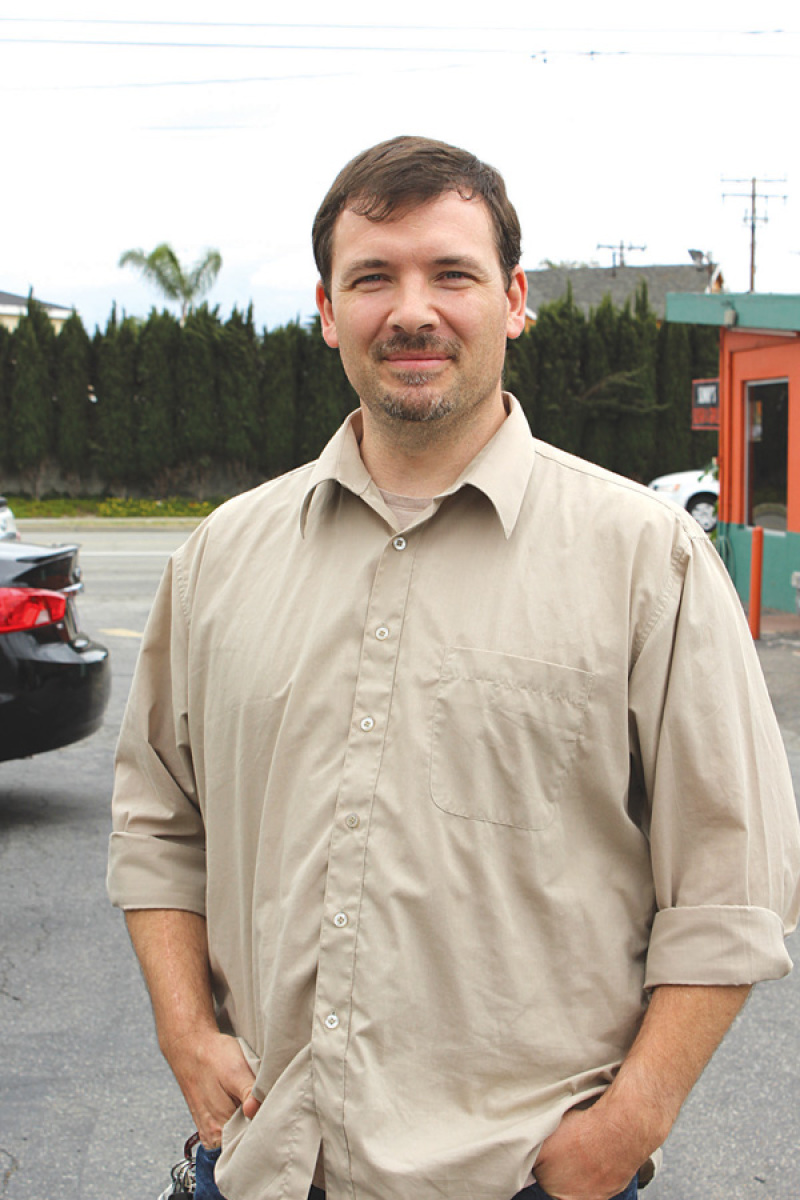
"Do you understand?"
"Jogeum," Tim Schlensker would respond in Korean with a smile as his abonim "” or father-in-law "” would turn and ask him in broken English in the middle of conversations with his other elderly Korean friends.
Abonim would then turn back to his friends and say something about Schlensker being a "babo" "” an affectionate Korean term to describe someone as "stupid' "” to which Schlensker would frown and dart back jokingly with a stern tone, "Abonim, I heard that!"
Today, 13 years into his marriage with his wife Michelle, Schlensker and his in-laws are friendly and even joke around about Schlensker's non-Korean ethnicity. Schlensker and his family are also active members of Living Hope Community Church, which consists mostly of Korean American congregants. Sometimes, Schlensker says, church members would forget that he's not Korean.

Tim Schlensker is a counselor and therapist who practices in Orange County, CA. Schlensker is well-acquainted with the challenges of overcoming differences in culture through his own experiences in marriage.
Schlensker comes from a family line that has been German Lutheran for generations since the 1700s, and he hadn't planned to be so involved in the Korean community, nor to marry a Korean woman. His relationship with Michelle served as the launching pad to his journey of learning and navigating through the differences in culture in the Korean community.
And for much of that journey, clear communication was significant in deepening relationships and coming to better understand one another, Schlensker said.
His first challenge came in trying to win the approval of his in-laws. At first, his to-be father-in-law was completely shut off.
"Her dad had no interest in meeting me or investing any time in me," Schlensker recalled. "On some level I think he was hoping I would disappear and go away because deep down, he really wanted Michelle to marry a Korean guy. Because that's his culture, that's what he's comfortable with."
Schlensker rolled up his sleeves and did his homework to win his in-laws' hearts. He enrolled in Korean classes to learn conversational Korean, and when he proposed to Michelle, he wrote a letter to abonim.
"I had written a letter to abonim because I couldn't explain myself fully in Korean," he said, "and the letter would give him more opportunity to understand [me] in the written word."
His efforts, particularly the letter, seemed to have gotten through to his father-in-law, but the reaction he received from his mother-in-law was unexpected.
"After that, all of a sudden abonim's demeanor totally changed. He said, "Yeah, you marry.' He turned 180 degrees -- as did his wife."
"Omonim, who had been very friendly before, suddenly said, "Oh no, you can't marry.' And I think her concern suddenly was, "Is he going to be able to be the traditional son-in-law and support us like we would expect?' Because the American culture can sometimes be, "Hey, old folks, take care of yourselves.' But Korean culture is "Come, we have an extra room. Live with us.' This is assumed," said Schlensker.
"But I have no problem assuming that that's going to be the case," he added.
In Michelle's case, her own experiences of having immigrated to the U.S. caused her to worry about what the future of her children would look like if she marries a non-Korean man.
"Michelle immigrated to America when she was nine years old," Schlensker explained. "She experienced the segregation and prejudice in a real way, like I would never experience and I never could."
"Her worry was, where would our children be? How would they feel growing up between cultures? Maybe fitting into both cultures, but maybe not. Maybe being ridiculed by both," he recalled.
But Schlensker not only experienced these differences in perspective and culture within his new family, but also in the Korean American church. Even though the churches he had served at were English-speaking congregations, some differences in perspective and expectations still existed, he explained.
Schlensker had worked at various churches as a children's ministry pastor "” both Korean and non-Korean. And one thing that stood out to him once he started serving at the Korean American churches is that church leaders seemed to expect more of a visionary type in him than he expected.
"I try to be the cooperative and obedient person for the most part, rather than the visionary in the church," Schlensker explained, "but that's the way a lot of people saw the "jundosa' position in the children's ministry. And here I was just waiting for the lead pastor to come and tell me, "This is how we run our ministry. This is what I want you to do.'"
"There was a miscommunication on that part," he added. "A misinterpretation or bad assumption of roles."
Schlensker, who now no longer works as a pastor but as a counselor, explained that having had the experiences he had "” learning a new culture, and navigating different types of relationships in the family and in the church "” drives his desire to help people in their own relationships and challenges.
"I want to be available and encouraging to staff members particularly when they're experiencing the struggles and dysfunction that I went through," he explained. "I want to help them have open and honest communication, and to be effective in ministry."
That open, honest communication is key to resolving many issues across the board, Schlensker said. As he hosts workshops on parenting, marriage, and other relational issues at churches, he says emphasizes, "How to deal with all of those issues is the same "” it's communication."
"Tactful, genuine, well-timed communication."



















